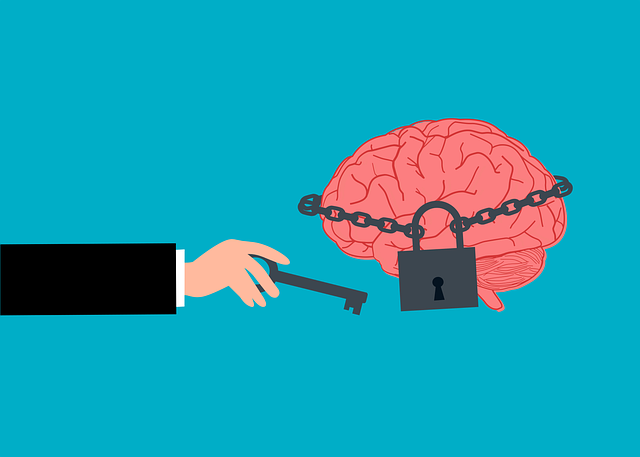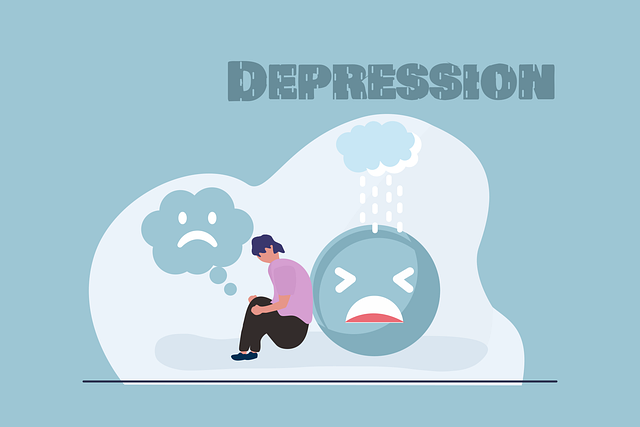Codependency, often linked to substance abuse, creates a vicious cycle harming both partners' mental health. To break this cycle, therapy focusing on self-care and relationship dynamics is crucial. Effective therapeutic approaches like CBT, mindfulness practices, and community support groups aid adults in recovering from codependency and substance abuse. Tailored interventions, risk assessments, and cultural competency training ensure comprehensive care throughout recovery. Building a strong support network remains vital for long-term success.
In today’s digital era, substance abuse poses a significant challenge, often rooted in codependency. This complex psychological condition, characterized by an excessive reliance on others’ approval, can lead individuals down a perilous path of addiction. Understanding the intricate link between codependency and substance abuse is crucial for implementing effective risk reduction strategies. This article explores therapeutic approaches tailored for adults struggling with codependency, providing insights into navigating recovery and maintaining sobriety for a vibrant, healthier future.
- Understanding Codependency and Its Link to Substance Abuse
- Therapeutic Approaches for Effective Risk Reduction
- Strategies for Long-Term Recovery and Maintaining Sobriety
Understanding Codependency and Its Link to Substance Abuse

Codependency is a complex dynamic where an individual’s identity and self-esteem become intertwined with another person’s behavior or habits, often unhealthy ones. It’s particularly relevant when discussing substance abuse because many individuals struggling with addiction have codependent relationships that contribute to or exacerbate their issues. In the context of therapy for adults codependency, understanding these relationships is key to recovery. When one person in a pair engages in substance abuse, the other may develop codependent behaviors, such as enabling the addiction by providing support, money, or covering up the user’s behavior to avoid conflict.
This cycle can create a vicious spiral where both individuals’ mental health suffers. Self-care routine development for better mental health is crucial here; it encourages those involved to prioritize their well-being and set healthy boundaries. Healthcare provider cultural competency training also plays an essential role, helping professionals recognize codependency and its link to substance abuse during risk assessments for mental health professionals. By understanding these dynamics, healthcare providers can offer more tailored support and guidance, addressing both the addiction and the underlying codependent relationships.
Therapeutic Approaches for Effective Risk Reduction

Therapeutic approaches play a pivotal role in effectively reducing risks associated with substance abuse. For adults dealing with codependency, individual therapy and group support sessions have proven to be powerful tools. Cognitive-behavioral therapy (CBT), for instance, helps individuals identify and change negative thought patterns and behaviors that contribute to drug use. By learning coping strategies and problem-solving skills, clients can navigate triggers and high-risk situations more effectively.
Incorporating stress reduction methods is another key strategy. Techniques such as mindfulness meditation, yoga, and relaxation exercises empower individuals to manage stress without resorting to substance abuse. Additionally, community outreach program implementation offers a supportive network, providing peer support and opportunities for social engagement that can deter relapse. For mental health professionals, conducting thorough risk assessments is essential before initiating treatment, allowing them to tailor interventions accordingly.
Strategies for Long-Term Recovery and Maintaining Sobriety

Maintaining long-term recovery from substance abuse is a continuous journey that requires dedicated strategies and support. One effective approach for adults seeking sobriety is individual or group therapy, focusing on addressing underlying issues like codependency. Through therapy, individuals can learn healthy coping mechanisms, improve their mood management skills, and develop positive thinking patterns. These therapeutic interventions play a crucial role in preventing relapse by providing tools to navigate triggers and emotional challenges.
Additionally, building a strong support network is vital for sustained recovery. This includes connecting with like-minded peers through support groups or community programs. The Healthcare Provider with specialized training in cultural competency can also offer guidance tailored to an individual’s unique needs, ensuring they receive comprehensive care throughout their recovery journey.
In addressing substance abuse, understanding codependency and its link to addiction is a crucial first step. Therapeutic approaches, particularly those tailored for adults struggling with codependency, offer effective risk reduction strategies. By combining these therapies with long-term recovery plans that focus on maintaining sobriety, individuals can break free from the cycle of addiction and build resilient, healthy lives. For those seeking help, there is hope; professional support and personalized strategies are key to achieving and sustaining lasting recovery.














